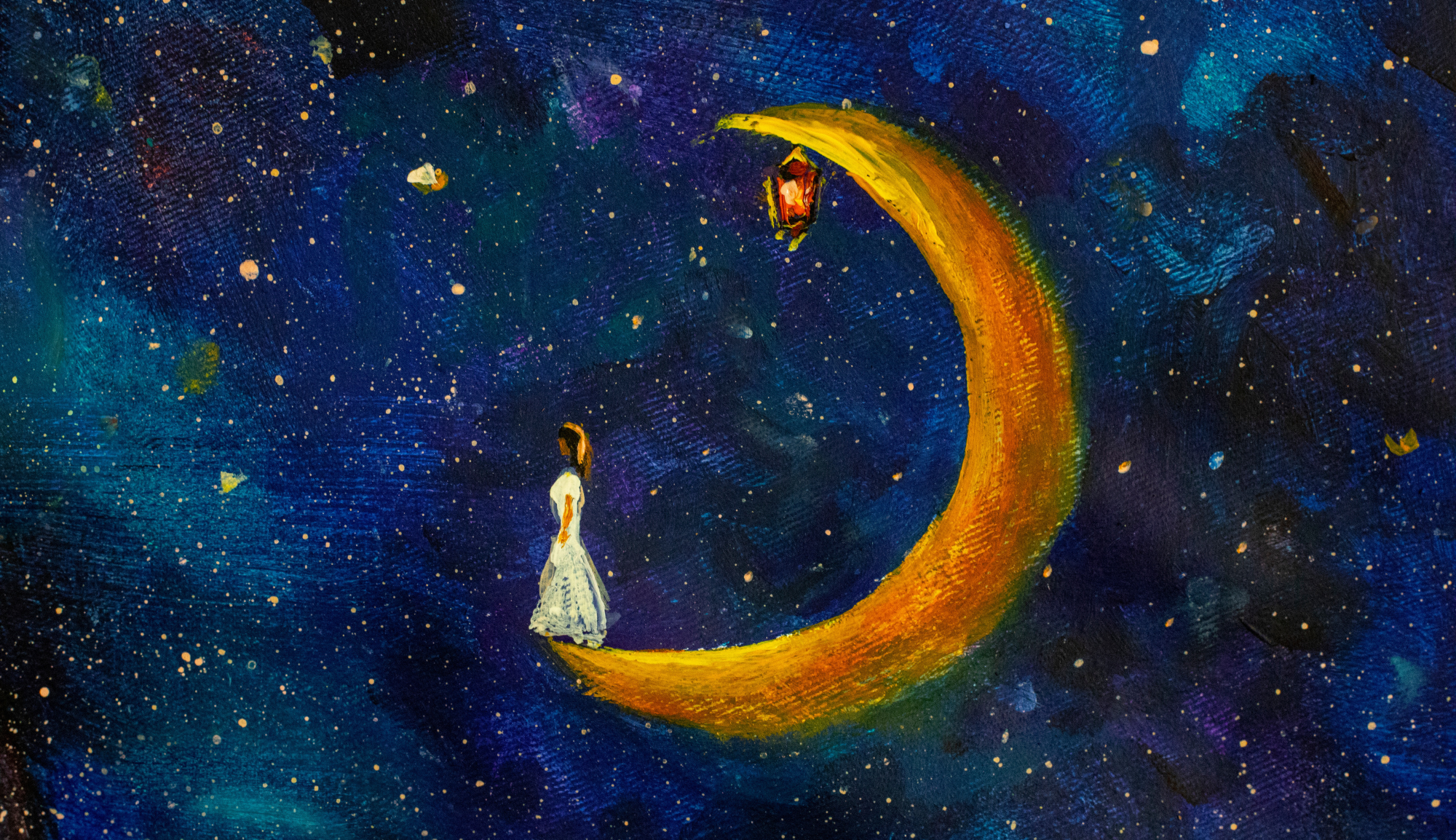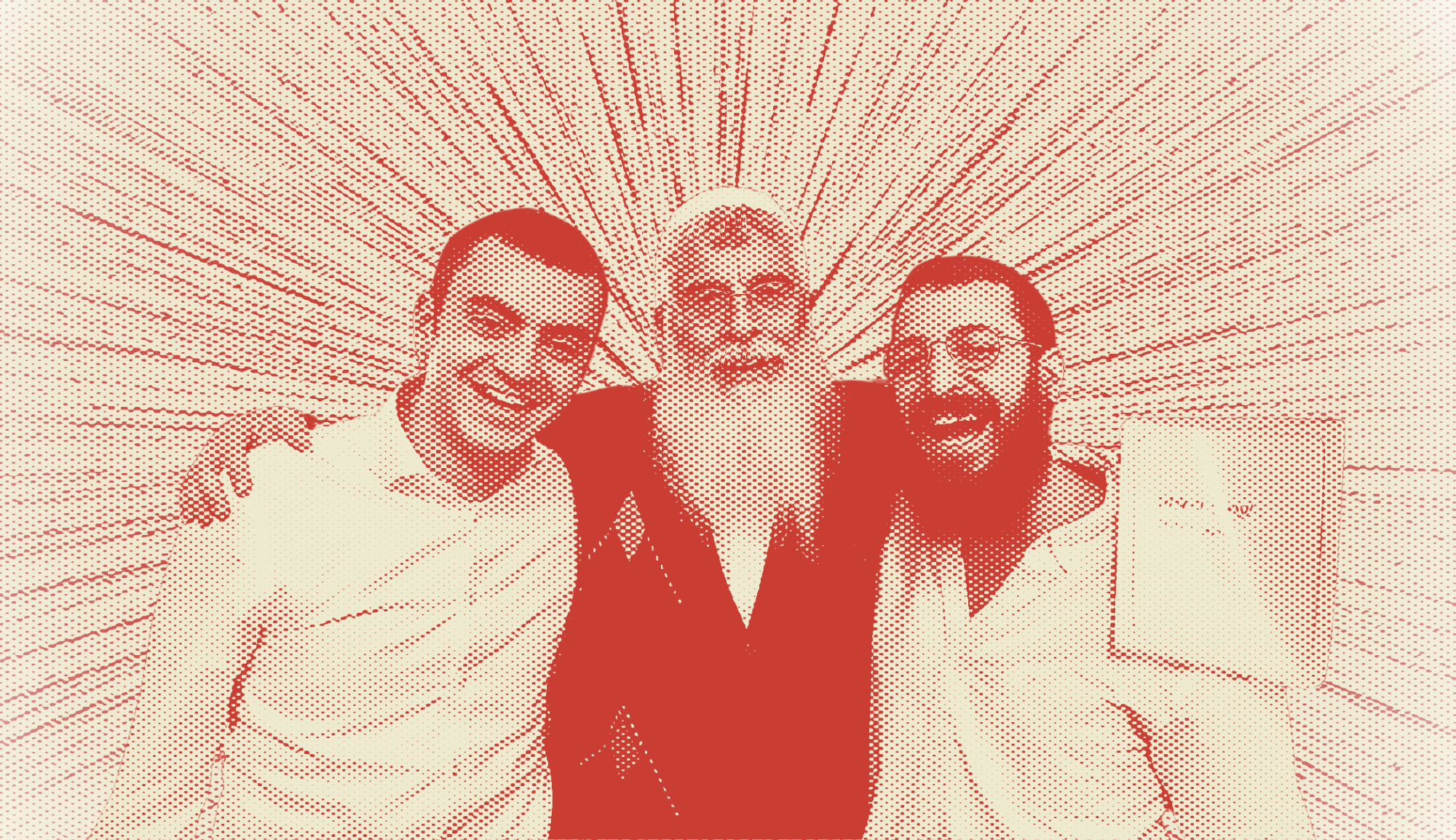I’m eight years old, and I push open the heavy front door of my grandparent’s house and squint into the darkness of the yard. I wonder if Elijah the Prophet will show up this year. I return to the Seder table after a few moments and rest my chin on the ornate tablecloth, closing one eye and focusing hard on the edge of the cup to see if the wine moves or changes in any way. The color remains the same, and as far as I can tell, the level doesn’t drop. Now I am unsure.
In all of my early years and those Seder nights at my beloved grandparent’s home, I never once caught the wine moving. I wasn’t sure if I was supposed to see it move, or maybe just believe that it would move. The message of the custom was unclear to me.
There was love in those Seder evenings, and there was tradition. We reclined in our chairs and told the story of Exodus. Yet, for me at least, there was something missing at the table. I could perform the actions of the evening, and maybe even convince myself to believe whatever was expected, but I was always unsatisfied, feeling like I was missing something.
In hindsight, I realize that I lacked properly aligned emunah—that necessary integrating element that is the foundation for belief and action; emunah allows action to nurture belief and belief to inspire action.
In hindsight, I realize that I lacked properly aligned emunah.
A lack of foundational emunah left me vacillating between belief and action, thinking that a focus on one could unlock a meaning to Judaism that felt out of reach. I thought that by taking the correct actions or thinking the correct things, maybe I would discover some fundamental truth that lay all my doubts to rest. That was not the case.
Years later, after I had grown up and passed through high school, university, and graduate school into the working world, I only occasionally found myself at Jewish religious functions: Shabbat dinner, the Seder, a wedding, shiva for a dear family member. Spiritually, I was no further along in resolving my childhood dilemma of meaning and truth. I was too busy in the secular world with business, heady affections, late night ponderings with philosophical types, and the esoteric desire to “find myself in the universe.” There was no space to concern myself with commandments, cups of wine, or G-d as the source of emunah.
If in my youth Judaism seemed ancient and powerful, in my young adulthood Judaism was almost anachronistic. I had no interest in engaging it, nor did I have any sense that it would provide me with what I was spiritually searching for.
If in my youth Judaism seemed ancient and powerful, in my young adulthood Judaism was almost anachronistic.
I spent my 20s poring over Jung, Nietzsche, Deleuze, Foucault, Sartre, and Kahneman, earnestly trying to understand so that I may do right in this world. I was looking for somewhere to place my faith, for something to believe in. By my logic, if some philosophical treatise or psychological innovation could unlock the deepest insight, I could use that very insight to know how I ought to act and believe.
It seemed reasonable at the time. Intellectual study and experiential learning would lead me to some final understanding, and that would unlock an integrated self—then my emunah would be secured! (Though, of course, I was thinking of anything but faith.)
But nothing stuck. One week it was the Nietzschean Ubermensch, inverting and revaluing all values, creating the world anew by the day; the next it was Kahneman’s Psychological System 1 and System 2; and then feeble attempts at integrating the conscious and the unconscious mind as Jung advised. All of these exercises proved to be nothing more than cities built on sand, washed away with the next tide of philosophical treatise or research-based discovery.
What was I to do and believe? (Or, believe and do?)
As Rabbi Lord Jonathan Sacks of blessed memory explored in his discussion of Mishpatim, when our ancestors accepted the covenant at Sinai, they said naase ve-nishma, “We will do and we will hear.”
They did not say, “I appreciate Your freeing us from slavery, but let us think about things a little bit so that we can decide if this covenant is right for us. I want to be sure it works in our modern, post-Egypt age before I commit.”
Why did they so confidently accept this covenant?
“This is what historically united the Jewish people,” Rabbi Sacks explains. “Judaism is a legal system. It is a code of behaviour. It is a community of deed. That is where we require consensus. Hence, when it came to doing – naase – the Israelites spoke ‘together’ and ‘with one voice.’”
I would add that the center of Judaism cannot hold without an additional element aside from action or simple belief: an unshakable faith in G-d.
Prior to the Jewish People’s unified pronouncement of naase ve-nishma, there were 10 plagues, the flight from Egypt, a guiding pillar of cloud and fire, the splitting of the sea, the giving of manna, and more and more and more. (See the Haggadah for more details.)
When the Jewish People stood at the foot of Sinai, one must imagine no hesitation regarding their absolute faith in G-d: “And when Israel saw the wondrous power which Hashem had wielded against the Egyptians, the people feared Hashem; they had faith in Hashem and in God’s servant Moses” (Exodus 14:31).
Unshakable emunah is the foundation upon which we may do and hear.
Today the majority of Jews identify as Reform or even fully secular, ascribing more to an ideological belief system or cultural identity rather than a code of law following from a declaration of faith. This is the Judaism of my childhood. Yet, the Jewish movement away from a unified declaration of emunah and a pronouncement of naase ve-nishma is not new. Nearly a century ago, Rabbi Samson Raphael Hirsch was fighting Germany’s secularizing forces of the Haskalah, or the prevailing Jewish enlightenment movement, which pushed for less adherence to Jewish law and greater participation in the ‘modern’ world.
His revelatory work, Horeb, neatly summarizes the issue, and is worth citing in long form:
Your idea of God may be something more than the mere result of a chain of reasoning pursued in total abstraction from the outside world. You may have beheld God directly in Nature or perceived Him in history. Holy Writ may have spoken to you as it did to generations before you in its God-revealing narratives. But you may have grasped all this only with your mind and stored it in your memory. This is not enough. So long as you do not receive God into your heart as your God, and embrace him with your whole being as your God, so long as this concept is a mere denizen of your brain, so long will this sovereign idea be without influence on your actual life.
Hirsch is describing the necessity of emunah.
Hirsch’s historical context introduces the allure of secularization as a recurring theme, not a moment in modern history. Unshakable emunah is the foundation upon which we may do and hear. Unfortunately, once we begin to modify our doing and consequently our hearing, we strike cracks into the foundation of a unified faith.
As a self-described tinok shenishbah, I find personal relief in this knowledge. It offers an opportunity to observe the rationale and consequences of secularizing Judaism in another era and not as a mere modern failure. As a historical example, there is no modern blame to be placed or critique to be cast against family, society, or the community I was raised in. Simply, I was born at this moment in time, and at this moment in time, the call of the modern age drew me and my community away from our emunah.
Today, the Seder is no longer a simple practice or declaration of belief, but rather an opportunity to affirm my faith, and to appreciate how difficult faith is to nurture.
The Jewish People didn’t receive the Torah while in Egypt—not after 10 plagues, nor after the splitting of the sea. They received the Torah after ever more trials and miracles, and only after additional examples of the greatness of G-d. They received the Torah at the exact proper moment when they could say naase ve-nishma on an unshakable foundation of unity and faith.
Today, as I grapple with developing faith, I see myself in this story. As the Haggadah states, “In every generation a person is obligated to regard himself as if he had come out of Egypt, as it is said: ‘You shall tell your child on that day, it is because of this that Hashem did for me when I left Egypt.’”
In my youth, I recall our family diligently speaking these words, noses buried in our soup-stained Maxwell House Haggadahs. Yet, I can only remember saying them with my mind or force of habit, not from my heart. From a place, as Rabbi Hirsch concludes, “without influence on your actual life.”
As an adult, I now feel the embers of that developing emunah, kindled with the breath of Torah study and nascent practice. I know I have a place in the story of our people because our stories are the same. We did not begin a journey out of bondage and leap directly into faithful practice, but rather stumbled, struggled, complained, and goofed up in the emerging process of receiving the gifts G-d gave us.
So this year, when we pour Elijah’s Cup and open the door to welcome him, I will do it as a call for eternal hope and my own continued redemption, not as a mere puzzle to be solved or a symbolic action to perform. It will be an act of emunah.





































